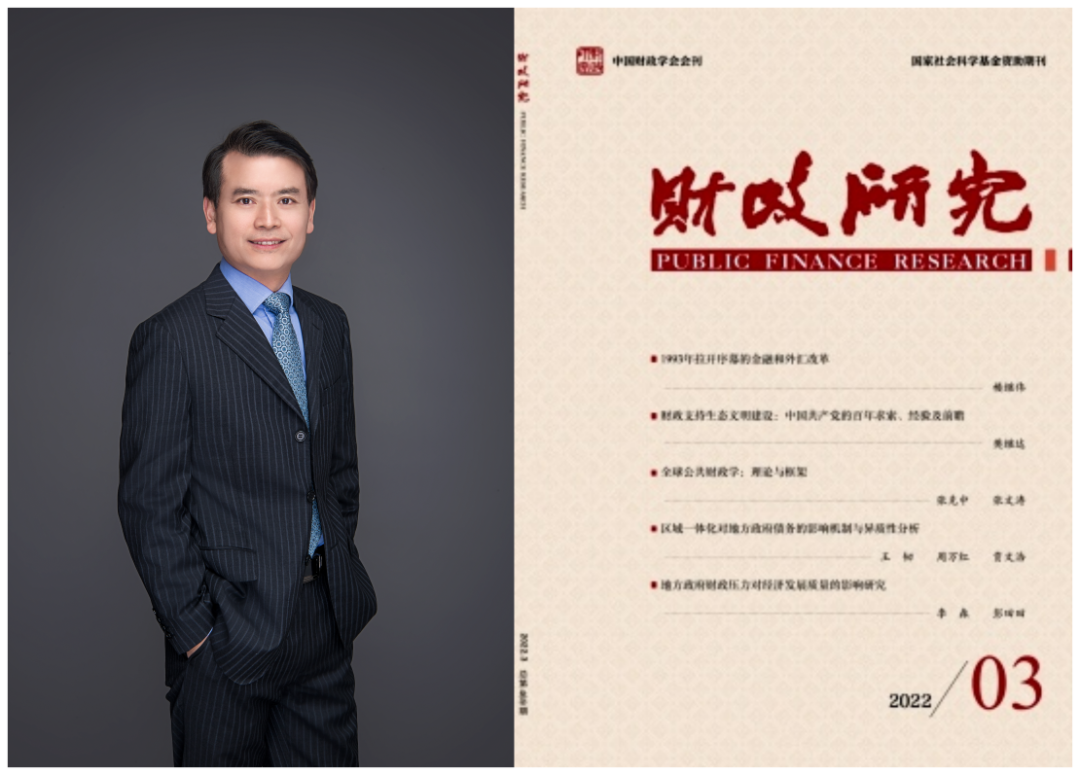
[Brief Bio] Dean of the School of Public Finance and Taxation, Deputy Director of IIDPF, Professor and PhD supervisor. His main research areas include fiscal theory and public policy evaluation. He was a visiting scholar at Georgia State University and Harvard Business School from 2011 to 2012. He has published a number of papers in prestigious journals in China and abroad, including Applied Economics, Energy, Journal of Futures Markets, Social Indicators Research, Economic Research Journal, Management World, China Economics Quarterly, and The Journal of World Economy.
[Viewpoints] The world is undergoing a change unprecedented in a century, the spread of the new epidemic has made the international situation more complex, and globalization is facing unprecedented challenges. Faced with the theoretical and practical dilemmas in the process of global development, countries around the world need to rethink how to deal with the challenges facing the world from a global perspective and seek a viable path for the improvement of human welfare. However, traditional theories of state finance, with their 'jurisdictional view of finance' and emphasis on government-led distributional relations within the nation-state, have considered public finance issues primarily at the national or regional level, without responding to national behaviour and choices from a global perspective. Global public finance studies the flow and use of financial resources by states in support of transnational public policies for reasons of self-interest, altruism or moral ethics, and offers a possible framework for fiscal analysis of global public issues. The article by Professor Zhang Kezhong and his co-authors, published in Public Finance Research, Issue. 3, 2022, attempts to construct a theoretical foundation and research framework for global public finance.
The study traces the development of public finance from traditional national public finance to global public finance, and divides the development of finance into two stages: the first is the "traditional national public finance" stage, which focuses on nation states or regions, and the second is the "global public finance" stage, which focuses on the global community as a whole, and is an extension and expansion of finance at the global level. The study then attempts to construct the philosophical and economic foundations of global public finance based on the philosophy of cosmopolitanism and the fiscal theory of the open economy. On a philosophical basis, this article applies the cosmopolitan principle of justice to the analysis of global public finance, making a moral assessment of the institutional arrangements of the global political economy and, on this basis, considering how to rectify unjust distribution systems to provide new perspectives for solving global public problems. Grounded in economics, global public finance extends the theory of public goods to the global level, examining how countries around the world respond to common challenges facing the globe, with the supply and financing of global public goods as the main focus. In conclusion, this study further builds a research framework for global public finance in four areas: global public goods supply and financing, global taxes, international tax competition and cooperation, and global inequality.
A global public finance approach seeks to help countries cope with the challenges of globalisation through the construction of a sovereign and compatible global public finance system. Global countries need to break the mould of fragmented governance and the practice of drawing a line in the sand and work together to address the risks and challenges of globalization. On the basis of full respect for national sovereignty, countries should achieve all-round policy coordination and cooperation, and jointly build a global public finance system with multiple subjects, multiple fields and multiple paths. In the process of participating in global governance, China needs to expand its vision of fiscal allocation to the world, establish a "global fiscal perspective" that transcends jurisdictions, and build a public finance system that matches its responsibilities in global governance to facilitate China's better participation in and reshaping of globalisation.
